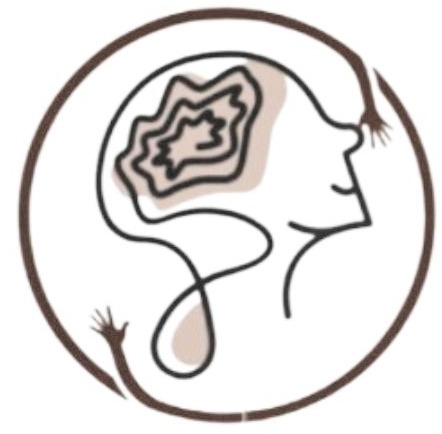
Self-exploration
Self-exploration is the process of delving deep into your thoughts, emotions, behaviors, and beliefs to gain a better understanding of who you are. It’s an introspective journey that helps you uncover the layers of your personality, desires, fears, and motivations. This process is not about finding quick fixes or surface-level solutions but about engaging in a profound and ongoing discovery of the self.
Through self-exploration, you can learn to recognize patterns in your life that may be holding you back, understand the impact of past experiences on your present self, and cultivate a deeper connection with your inner world. It is about finding clarity, purpose, and authenticity in your life, which allows you to live more fully and intentionally.
Why is Self-Exploration Important?
In a fast-paced world filled with external pressures and expectations, it’s easy to lose sight of who we truly are. We often find ourselves conforming to societal norms, family expectations, or the roles we think we should play, without taking the time to ask ourselves what we really want or who we really are. Self-exploration is essential because it provides the space to reflect on these questions and align our lives with our true selves.
By engaging in self-exploration, you can:
- Gain Self-Awareness: Understanding your thoughts, emotions, and behaviors can help you make conscious choices that align with your values and goals.
- Build Emotional Resilience: Recognizing and processing your emotions allows you to navigate life’s challenges with greater ease and confidence.
- Enhance Relationships: Knowing yourself better enables you to form more authentic and fulfilling connections with others.
- Find Purpose and Direction: Clarifying your values, desires, and motivations helps you create a life that is meaningful and fulfilling.
Self-Exploration Through a Psychoanalytic Lens
In the context of psychoanalysis, self-exploration is seen as a journey into the unconscious mind, where many of our deepest desires, fears, and conflicts reside. Psychoanalysis posits that much of our behavior is influenced by unconscious processes, which are shaped by early life experiences, unresolved conflicts, and repressed emotions.
Through self-exploration, you can begin to uncover these unconscious processes and bring them into conscious awareness. This allows you to gain insight into the hidden forces that drive your thoughts, emotions, and behaviors. By understanding these underlying dynamics, you can begin to make more informed and intentional choices in your life.
In relational psychoanalysis, self-exploration is also viewed as a relational process. It involves not only exploring your inner world but also understanding how your relationships with others have shaped your sense of self. The therapeutic relationship itself becomes a space for self-exploration, where you can safely examine and reflect on your relational patterns and how they influence your life.
The Process of Self-Exploration
Self-exploration is a deeply personal and individual process, but it often involves several key components:
- Reflection: Taking time to reflect on your thoughts, feelings, and experiences is a fundamental part of self-exploration. This can involve journaling, meditation, or simply setting aside time for introspection.
- Understanding Your History: Exploring your past experiences, particularly those from childhood, can provide insight into how they have shaped your present self. This can help you identify patterns or unresolved conflicts that may be influencing your current life.
- Identifying Core Beliefs: We all hold certain beliefs about ourselves and the world that shape our perceptions and actions. Self-exploration involves examining these beliefs and questioning whether they serve your true self.
- Exploring Emotions: Emotions are powerful indicators of our inner world. Understanding your emotional responses can help you connect with your deeper needs and desires.
- Examining Relationships: Relationships play a crucial role in shaping our sense of self. Reflecting on your relationships can help you understand how they have influenced your identity and behaviors.
Why Self-Exploration is a Lifelong Journey
Self-exploration is not a one-time event but a lifelong journey. As we grow and evolve, our understanding of ourselves deepens and changes. New experiences, challenges, and relationships continually shape and reshape our sense of self. Engaging in ongoing self-exploration allows us to stay connected with our inner world and continue to grow as individuals.
In therapy, self-exploration is an ongoing process that is supported by the therapeutic relationship. The therapist provides a safe and non-judgmental space where you can explore your inner world, gain insight into your unconscious processes, and develop a deeper understanding of yourself.
The Benefits of Self-Exploration
The benefits of self-exploration are profound and far-reaching. Through this process, you can:
- Cultivate Self-Compassion: By understanding your inner world, you can develop greater compassion for yourself and your experiences.
- Enhance Personal Growth: Self-exploration fosters personal growth and development, helping you become more authentic and aligned with your true self.
- Improve Decision-Making: With greater self-awareness, you can make decisions that are more aligned with your values and desires.
- Increase Emotional Intelligence: Understanding your emotions and how they influence your behavior can improve your emotional intelligence and interpersonal skills.
- Strengthen Your Sense of Purpose: Clarifying your values and motivations helps you live a more purposeful and meaningful life.
Conclusion
Self-exploration is a powerful tool for personal growth and healing. It allows you to delve deep into your inner world, uncover hidden aspects of yourself, and gain a greater understanding of who you are and what you want from life. Whether you are seeking to understand your past, navigate a current challenge, or simply connect more deeply with yourself, self-exploration offers a path to greater self-awareness, emotional resilience, and fulfillment. Through this process, you can begin to live a life that is more authentic, intentional, and aligned with your true self.
